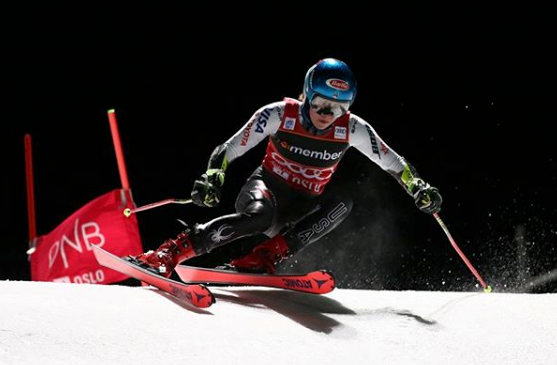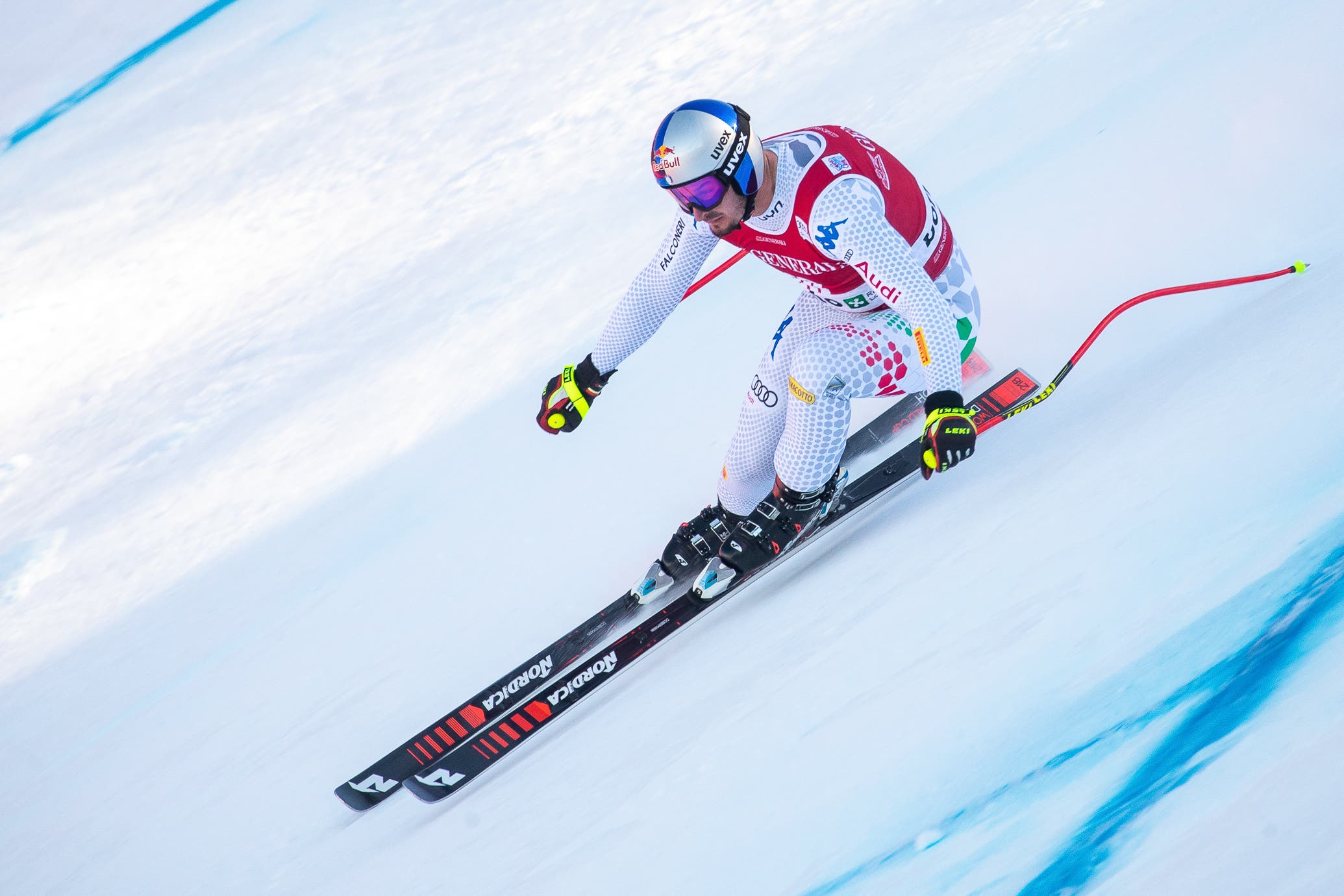Vlhova, Schwarz Win Oslo City Event

Photo from US Ski and Snowboard
On January 1, the top 32 slalom racers in the world launched into the new year out of side-by-side start gates at the Audi FIS World Cup City Event in Oslo, Norway. Under flood lights on Oslo’s famed Holmenkollen ski jump hill, the best 16 female and 16 male technical racers on the World Cup circuit skied head-to-head on parallel slalom courses for the first City Event victory on this season’s circuit.
Women’s Oslo City Event
As expected, the women’s big final pitted Mikaela Shiffrin and Slovakia’s Petra Vlhova against each other for the second time this season. But this time it was Shiffrin who had to settle for second place behind Vlhova.
Shiffrin, just coming off her 36th World Cup slalom win in Semmering, Austria, looked to defend her title as reigning City Event champion, having won the last two City Events in Oslo in 2018 and Stockholm in 2017. But Vlhova, who’s been snapping at Shiffrin’s heels all season in the technical events and at the last parallel slalom in St. Moritz, Switzerland, had other plans.
The American advanced to the big final after beating Norway’s own Ragnhild Mowinckel in the opening round, Canada’s Erin Mielzynski in the quarterfinals, then Switzerland’s Wendy Holdener, winner of the 2016 City Event in Stockholm, in the semifinals. Though she won both runs of each round, Shiffrin at times only narrowly crossed the finish line ahead of her competitors.
Vlhova easily defeated her competitors in the early rounds—first Switzerland’s Aline Danioth, then Italy’s Irene Curtoni, and finally Sweden’s Anna Swenn Larsson in the semifinals—to move into the big final against Shiffrin. Unlike most other women in the event who skied the course like a GS—turning around the gates and knocking them down with their shoulders and arms—Vlhova used a cross-blocking technique typically used by the men to mow down the gates to allow her to ski a more direct line. This gave her a significant advantage in both the upper and lower sections of the course that were set straighter and required less turning. She used this technique to defeat Shiffrin in both the first and second run of the big final.
“Finally, I did perfect runs, and also finally I’m at the top of the podium after four second places,” Vlhova said after the race. “If you beat Mikaela it’s always a good feeling, because everyone knows she’s really strong.”
“Petra skied disciplined, fast, and she skied smart,” Shiffrin told U.S. Ski & Snowboard. “She took the risk in the first run when she needed to, and she was smart in the second run when she needed to be.”
Switzerland’s Wendy Holdener, defeated by Vlhova in the semifinal, won the small final against Sweden’s Anna Swenn Larsson to take third place. See the results from the Women’s Oslo City Event.
Men’s Oslo City Event
The men’s event concluded with an unexpected final between Austria’s Marco Schwarz and Great Britain’s Dave Ryding, with Schwarz ultimately taking the win.
The entire bracket-style event saw upsets throughout. In the first round, Schwarz advanced past France’s Alexis Pinturault. Mattias Hargin of Sweden beat heavily favored Norwegian Henrik Kirstoffersen in the first round as well. In the quarter finals Ryding beat the best slalom skier in the world, Marcel Hirscher of Austria, after the Austrian straddled a gate and was caught in the flag.
Swedish technical specialist Andre Myhrer was caught in a gate in the semi-final against Ryding, and then caught his pole on a gate and had to do a body slide recovery in the small final against Ramon Zenhäusern of Switzerland. Zenhäusern finished third overall. You can find the full results from the Men’s Oslo City Event here.
In Case You Missed It
A Record-Breaking World Cup Weekend for Vlhova and Shiffrin

The week before Oslo, Shiffrin and Vlhova battled it out in Semmering, Austria, in the GS and slalom. Vlhova became the first Slovakian national to win a FIS World Cup GS race, while Shiffrin became the winningest slalom skier of all time in the slalom. Read the full event recap from Semmering.
Paris Sweeps Bormio Speed Events

Last week, the FIS World Cup men’s tour held the downhill and super-G races on the famed Stelvio course in Bormio, Italy. Italian Dominik Paris won both events and, combined with his downhill wins in 2012 and 2017, became the first racer ever to win four events at a single venue. Read the Bormio super-G recap.
Related: American Bryce Bennett Fourth in Bormio Downhill
Jenny Wiegand and Jon Jay contributed to this story.